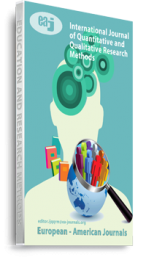This paper is purposed to provide a deeper understanding to the current concept of humility and its role in higher education as far as knowledge dissemination is concerned. Since humility has become increasingly important in latest years, and is recognized as a critical asset for universities particularly due to the growing complexity of dynamic knowledge base environments and the further advancement of regulatory frameworks for competitive advantage. Humility in institutions of higher learning is an idea whose time has come. In light of anticipated challenges and changes that continue to unfold in the 21st century, scholars in public and private universities have suggested a greater need for organizational members to have the humility to acknowledge areas of ignorance and inexperience and to foster the learning and adaptation that will be required to succeed in an increasingly unpredictable workplace. Explanatory and confirmatory factor analysis have been conducted to explore and validate the factor of humility as a construct of emotional intelligence. The paper is based on an explanatory study that targeted a population of 6,423 academic staff employees in Kenya from 49 selected universities. A sample size of 378 employees was systematically selected and data collected using a structured questionnaire anchored on a five-point Likert scale. The instrument was evaluated for internal consistency and subjected to principal component analysis to explore extant dimensions. Though humility awareness by academic staff of universities is widely known, morinsights needs to be drawn to expound more from the benefit of knowledge sharing behaviour. The regression results indicated that Humility has a positive and significant effect on knowledge sharing behavior (β = 0.30, p<0.05). Universities in Kenya should be encouraged to focus on humility in order to improve on knowledge sharing behaviours of academic staff since it was evident that whenever academic staff had greater humility in the university, they would inspire and influence universities competitive advantage through knowledge and emotional intelligence. It is treating all people regardless of who they are, with respect, gentleness, kindness, and forgiveness. A person who is humble shares knowledge without measure of superiority, arrogance, and haughtiness of a person towards other people and understands what drives their behaviour, as well as the effects that it has on others as the most common trademarks of intelligence that value the enhancement of knowledge sharing behavior in modern universities as revealed by the study. Humility awareness as a catalyst in universities in Kenya have relatively been downplayed by institutions of higher learning, University management and scholars especially in harnessing knowledge
Keywords: Catalyst, Kenya, Universities, and competitive advantage., humility, knowledge sharing behaviour

